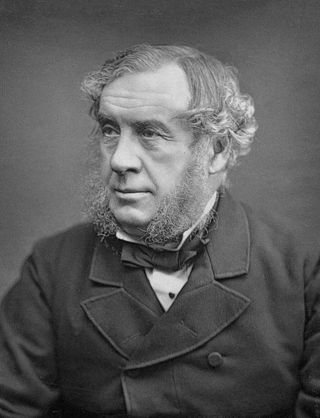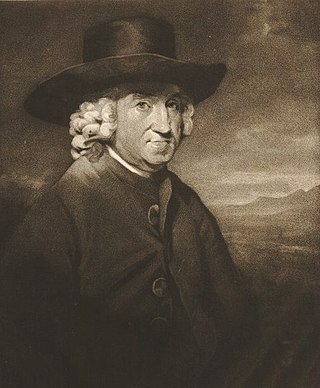Related Research Articles
September 29 is the 272nd day of the year in the Gregorian calendar; 93 days remain until the end of the year.

Sir Donald Francis Tovey was a British musical analyst, musicologist, writer on music, composer, conductor and pianist. He had been best known for his Essays in Musical Analysis and his editions of works by Bach and Beethoven, but since the 1990s his compositions have been recorded and performed with increasing frequency. The recordings have mostly been well received by reviewers.

Sir William Robert Grove, FRS FRSE was a Welsh judge and physical scientist. He anticipated the general theory of the conservation of energy, and was a pioneer of fuel cell technology. He invented the Grove voltaic cell.

William Tytler WS FRSE (1711–1792) was a Scottish lawyer, known as a historical writer. He wrote An Inquiry into the Evidence against Mary Queen of Scots, against the views of William Robertson. He discovered the manuscript the "Kingis Quhair", a poem of James I of Scotland. In 1783 he was one of the joint founders of the Royal Society of Edinburgh.

Sir William Smith was an English lexicographer. He became known for his advances in the teaching of Greek and Latin in schools.

Félix Savart was a French physicist and mathematician who is primarily known for the Biot–Savart law of electromagnetism, which he discovered together with his colleague Jean-Baptiste Biot. His main interest was in acoustics and the study of vibrating bodies. A particular interest in the violin led him to create an experimental trapezoidal model. He gave his name to the savart, a unit of measurement for musical intervals, and to Savart's wheel—a device he used while investigating the range of human hearing.

Prof Alexander Smith FRSE LLD was a Scottish chemist, who spent his working life teaching in the universities of America.

Sarah Edith Wynne was a Welsh operatic soprano and concert singer.
Alexander Donaldson was a Scottish bookseller, publisher, and printer. Donaldson was the founding publisher of the weekly newspaper, the Edinburgh Advertiser. He was also known for selling cheap copies of books after their copyright had expired in disregard to London booksellers' opinions on literary property.

Alexander Taylor Innes FRSE LLD, was a lawyer, writer, biographer and church historian. In authorship he is usually abbreviated as A.T.I.
Frederick Niecks was a German musical scholar and author who resided in Scotland for most of his life. He is best remembered for his biographies of Frédéric Chopin and Robert Schumann.
John Weale was an English publisher of popular scientific, architectural, engineering and educational works.

Prof David Boswell Reid MD FRSE FRCPE was a British physician, chemist and inventor. Through reports on public hygiene and ventilation projects in public buildings, he made a reputation in the field of sanitation. He has been called the "grandfather of air-conditioning".
Sir Herbert Stanley Oakeley, was an English composer, most well known for his role as Professor of Music at the University of Edinburgh. Prior to his appointment to this role in 1865 he established his reputation as an organist, composer, and musician. During his tenure at the University of Edinburgh he founded a number of university musical societies across Scotland, most notably the Edinburgh University Music Society, and successfully resolved the university's Reid School of Music into a Faculty able to award degrees to its graduates. He socialized with and mentored contralto, composer, and festival organizer Mary Augusta Wakefield.
The Reid Professorship in Music was a position founded within the University of Edinburgh in 1839 using funds provided in a bequest from General John Reid.
The Regius Chair of Rhetoric and English Literature at the University of Edinburgh was established in 1762. It is arguably the first professorship of English Literature established anywhere in the world. Its first holder was Professor Hugh Blair.

Sir George Macdonald was a British archaeologist and numismatist who studied the Antonine Wall.
Charles Lawson of Borthwick Hall (1795–1873) was a Scottish nurseryman and merchant, noted for the introduction of foreign crops into the United Kingdom. He served as Lord Provost of Edinburgh from 1862 to 1865.

The Reid Concert Hall is a small music venue in the city of Edinburgh, Scotland. It is located in the south-western corner of Bristo Square about 0.53 kilometres (0.33 mi) south of the Royal Mile, and is part of the University of Edinburgh. Originally opened in 1859 as the Reid School of Music by the university's professor of music, John Donaldson (1789-1865), it was designed by the Scottish Architect David Cousin and is a Category A listed building. The hall is named after General John Reid, an army officer and musician who founded the Chair of Music at the university. The Reid Concerts take place every 13 February.
References
- 1 2 Christopher D. S. Field, "Donaldson, John", Grove Music Online (Oxford University Press, 2001). Retrieved 18 December 2018.
- 1 2 W. B. Squire, rev. John Purser, "Donaldson, John", Oxford Dictionary of National Biography (Oxford University Press, 2004). Retrieved 18 December 2018.